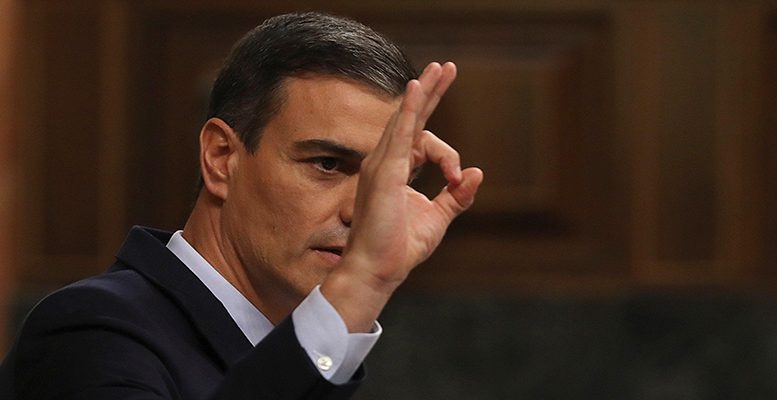Fernando González Urbaneja| The procedure adopted by the acting president Pedro Sánchez to impose an amnesty in favour of the Catalan independence movement is the culmination of “trágala” as a form of government that has little to do with the formalities of democracy. The dictionary defines trágala as “an act by which someone is forced to accept or endure something by force”.
The amnesty that is so much talked about and about which so little is known is an indeclinable demand by the Catalan pro-independence supporters in order to grant Pedro Sánchez the investiture. It can be disguised as a service to Spain or whatever those who accept the demand like, but it is an inexcusable condition to deliver 14 indispensable votes to Sánchez in order to obtain the investiture.
Fulfilling the demand obliges the incumbent government to promote an ad hoc law, the content of which is completely unknown. And to facilitate the task, it intends to act under the formula of a bill of Parliament itself – although it is public and notorious that it has been drafted within the government – which avoids the controls of legality of any law, which requires a mandatory report from the Council of State, the Council of the Judiciary… But the pro-independence supporters are in a hurry and do not trust Sánchez, so they want to have the law tied up as far as possible, until its formal presentation and admission by the Bureau of Congress.
This is a blatant attack on the legislative power that is added to others that have been practised throughout the past legislature with the aim of turning the government’s will into law, with no practice of the “restraint” that all power should apply in a democracy worthy of the name.
In this case, the executive becomes the decisive power over the legislative and judicial branches, which it tramples on decisively and at all levels. Including the Constitutional Court, which will be forced to take a partisan decision that could enshrine this body as the ultimate arm of the executive.
The request for an urgent meeting of the Council of the Judiciary demanded by eight members of the same to debate the issue of amnesty indicates the clash of powers and competences that ratifies that in the service of an investiture the will of the pretender is imposed, which overturns the mechanism of the balance of powers inherent to the most elementary democracy.
The document published by the Círculo Cívico de Opinión this weekend states that “the amnesty that is being demanded lacks, apart from its disputed constitutionality, any basis to justify it and has far-reaching political effects on the institutional system of the rule of law with unforeseeable consequences on its stability and even on its continuity”… to call into question (all the jurisdictional actions carried out on the procés) constitutes an arbitrary and gratuitous disqualification of the Spanish democratic state, and furthermore infringes essential constitutional principles such as equality, legal certainty and the separation of powers”.
On this occasion, President Sánchez has chosen to apply the principle that the end (investiture, not repeating elections, the risk of losing them) justifies the means (doing everything possible to achieve investiture). The problem is that this is not the only one, nor is it the first trágala of Mr Sánchez and his accomplices.





